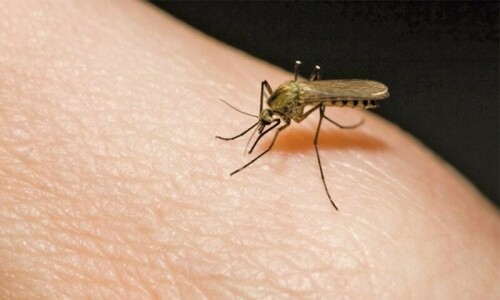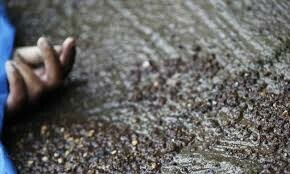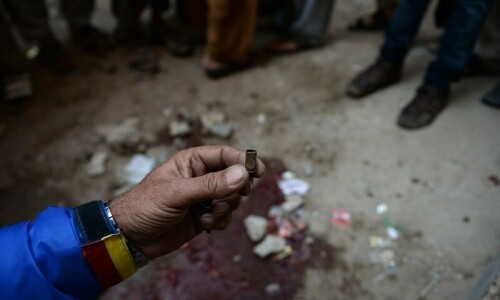KARACHI, Jan 4: A member of an influential family and his companions have been booked under the Sindh Wildlife Protection Ordinance, 1972, for hunting a crocodile at a game reserve, as the hunting of the protected species is prohibited under the ordinance.
According to sources, Syed Imran Ali Shah, son of Zahoor Shah, who comes from an influential family, is a resident of Ranipur, taluka Sobhodero in Khairpur district. In his hunting trip, he was accompanied by his friends, Ghulam Abbas, a resident of Jamaluddin Panhiyar Goth, taluka Nara in Khairpur district, and Nek Mohammad, son of Mir Hassan Panhiyar, a resident of Dakhar Goth of the same taluka.
Sources said that the poachers riding a four-wheeler came to the Nara Game Reserve and shot dead a seven/eight-feet-long crocodile. They later tied the carcass on the bonnet of the vehicle and drove away.
Responding to Dawn’s queries, Sindh Wildlife conservator Hussain Bakhsh Bhagat confirmed the report and said that a wildlife party was on patrol in the area and heard gunshots. When the party rushed to scene, the party saw a vehicle with the carcass of a mature crocodile tied on its bonnet coming towards them.
The Wildlife staff signaled the driver to stop. He did slow the vehicle down, but upon realising that it was a wildlife party in uniform, he tried to speed away. However, the offenders were recognised by the staff who booked them.
Mr Bhagat said that a first offence report (FOR) — SWD’s equivalent to the police’s FIR — No.4/479 was registered against the suspects under Sections 7 (i), (iii) & (iv) and 16/17 (ii) & (iv) of the Sindh Wildlife Protection Ordinance 1972 by Nara Taluka Game Inspector Noor Mohammad Mehrani and the case was referred to the judicial magistrate, Kot Diji.
Crocodiles used to be found in abundance in the marshes, particularly along the Nara Canal but owing to the widespread poaching and hunting, as well as trading in wildlife animals, it has now became a rare species in the region and facing extinction.
Mr Bhagat pointed out that that crocodile skin was an expensive commodity used by manufacturers of luxurious shoes and decorative items. He said that while the department was making efforts to curb hunting and trading of wildlife species, people should also discourage sellers of wildlife animals and the products made with their skin and other body parts by refusing to buy such things to ensure survival of the wildlife.














































Dear visitor, the comments section is undergoing an overhaul and will return soon.